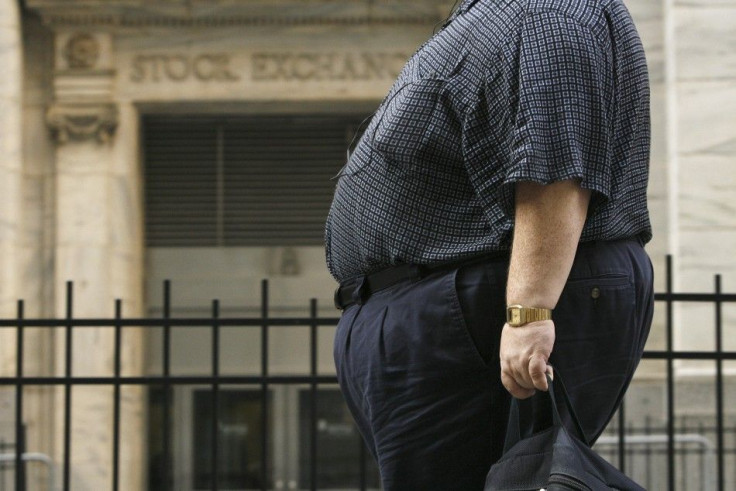New Zealand Plans to Deport South African Immigrant For Being ‘Too Fat’

A South African chef has been told by New Zealand immigration authorities that he is “too fat” to live in the country and faces deportation. According to reports, Albert Buitenhuis, who tips the scales at 130 kilograms (about 287 pounds), had his work visa rejected by immigration officials in May because he is at "significant risk" of developing health complications like diabetes, hypertension, heart disease and obstructive sleep apnea.
"It is important that all migrants have an acceptable standard of health to minimize costs and demands on New Zealand's health services," an immigration spokesman said, according to BBC. "Unless it is in the extreme, obesity will not in itself cause an applicant to fail health screening requirements, but [the immigration department’s] medical assessors have to consider to what extent there might be indications of future high-cost and high-need demand for health services.”
Buitenhuis, who has lived in the city of Christchurch with his wife Marthie for six years, has already lost 30 kg (meaning, he peaked at about 353 pounds in weight). He told media that his annual work visas had been easily renewed by immigration officials until this year, when their visas were rejected. "We applied year after year and there were no issues," Marthie told The Press newspaper of New Zealand. "They never mentioned Albert's weight or his health once and he was a lot heavier then. The irony is that at the moment he weighs less than when we first arrived in New Zealand and also less than in his first medical [evaluation], which was accepted by [immigration authorities].”
The Buitenhuis couple have appealed the visa ruling directly to New Zealand’s associate Immigration Minister Nikki Kaye, who has yet to issue a statement. Buitenhaus, who is five feet ten inches tall, has a body mass index (BMI) of 40, which classifies him as “clinically obese.” Under New Zealand immigration policies, an applicant for permanent residency must have a BMI below 35. A spokeswoman for New Zealand’s Labour government Darien Fenton said that minister Kaye needs to "review the case very carefully.” "On the one hand, I do feel very sympathetic for the [Buitenhaus] couple as they have been here for so many years and he has actually lost weight since he got here," she said. "On the other hand, we do see many migrants who become very sick in hospital and can't afford to pay their bills. "
The Buitenhaus story has spread across the globe and Marthie said she was “blown away” by the support she and her husband have received. "Who knew that the world would be so interested in the story of a chef from New Zealand? We've had calls from people in India and Denmark wanting to talk to us about it," she told the Press.
As for the legality of New Zealand’s immigration policy, David C. Koelsch, Associate Professor and Director of the Immigration Law Clinic at the University of Detroit Mercy School of Law, told International Business Times that as “Darwinian” as U.S. immigration laws can be at times, Buitenhuis would not be prohibited from entering the U.S. nor deported as a result of his weight-related health condition. “The Immigration & Nationality Act has four categories of health conditions that may render an alien inadmissible: communicable disease of public health significance, failure to show proof of required vaccinations, mental or physical disorder with associated harmful behavior, or drug abuse or addiction,” Koelsch said. “Obesity is not contagious so it would not qualify.”
However, Koeslch indicated that under the laws of Canada, Buitenhuis might be barred from entry or deported unless he secured private health insurance sufficient to cover his anticipated medical needs, such as knee surgery, etc.
Lenni B. Benson, Professor of Law at New York Law School at NYU, commented that New Zealand authorities are likely concerned that their public health system would be “unduly burdened” by the physical condition of migrants like Buitenhuis. Benson also noted that U.S. deportation statutes differ from grounds of inadmissibility. “We [U.S.] don't use health as a basis for removal,” she said. “Yes, drug abusers are removed potentially but usually only with convictions. You can become deportable if you became a ‘public charge,’ unless the circumstances arose five years after your original admission.”
Ironically, the impending expulsion order seems to ignore the fact that New Zealand is one of the fattest nations on earth – OECD data indicate that only the United States and Mexico have a higher percentage of obese citizens in the developed world. Almost one-third (30 percent) of New Zealanders are overweight, although this data is likely skewed by obesity rates found among the native Maori population.
© Copyright IBTimes 2025. All rights reserved.





















